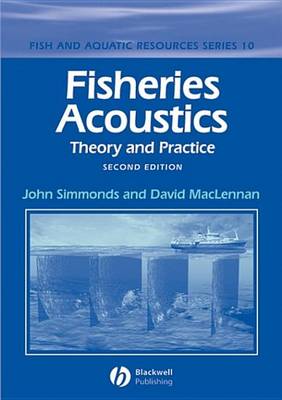Fish and Aquatic Resources
1 primary work • 2 total works
Book 1
Living resources of the sea and fresh water have long been an important source of food and economic activity. With fish stocks continuing to be over-exploited, there is a clear focus on fisheries management, to which acoustic methods can and do make an important contribution. The second edition of this widely used book covers the many technological developments which have occurred since the first edition; highly sophisticated sonar and computer processing equipment offer great new opportunities, and "Fisheries Acoustic, 2e" provides the reader with a better understanding of how to interpret acoustic observations and put them to practical use. The features include: well known and respected authors; emphasis on practical acoustic methods; and detailed coverage of a commercially and environmentally important subject. It is a vital tool for fisheries scientists, fisheries oceanographers, environmental biologists, ecologists, population biologists, fish biologists, and marine biologists. It is useful for all those involved with design and use of acoustic equipment.
Libraries in research establishments, government stations and universities where fisheries science is studied or taught will find this a welcome addition to their shelves.
Libraries in research establishments, government stations and universities where fisheries science is studied or taught will find this a welcome addition to their shelves.
Fisheries Acoustics Theory and Practice 2e
by John Simmonds and David N. MacLennan
Published 20 November 2007
Living resources of the sea and fresh water have long been an important source of food and economic activity. With fish stocks continuing to be over-exploited, there is a clear focus on fisheries management, to which acoustic methods can and do make an important contribution. The second edition of this widely used book covers the many technological developments which have occurred since the first edition; highly sophisticated sonar and computer processing equipment offer great new opportunities and Fisheries Acoustic, 2e provides the reader with a better understanding of how to interpret acoustic observations and put them to practical use. * Well known and respected authors * Emphasis on practical acoustic methods * Detailed coverage of a commercially and environmentally important subject A vital tool for fisheries scientists, fisheries oceanographers, environmental biologists, ecologists, population biologists, fish biologists, and marine biologists. All those involved with design and use of acoustic equipment. Libraries in research establishments, government stations and universities where fisheries science is studied or taught will find this a welcome addition to their shelves.

